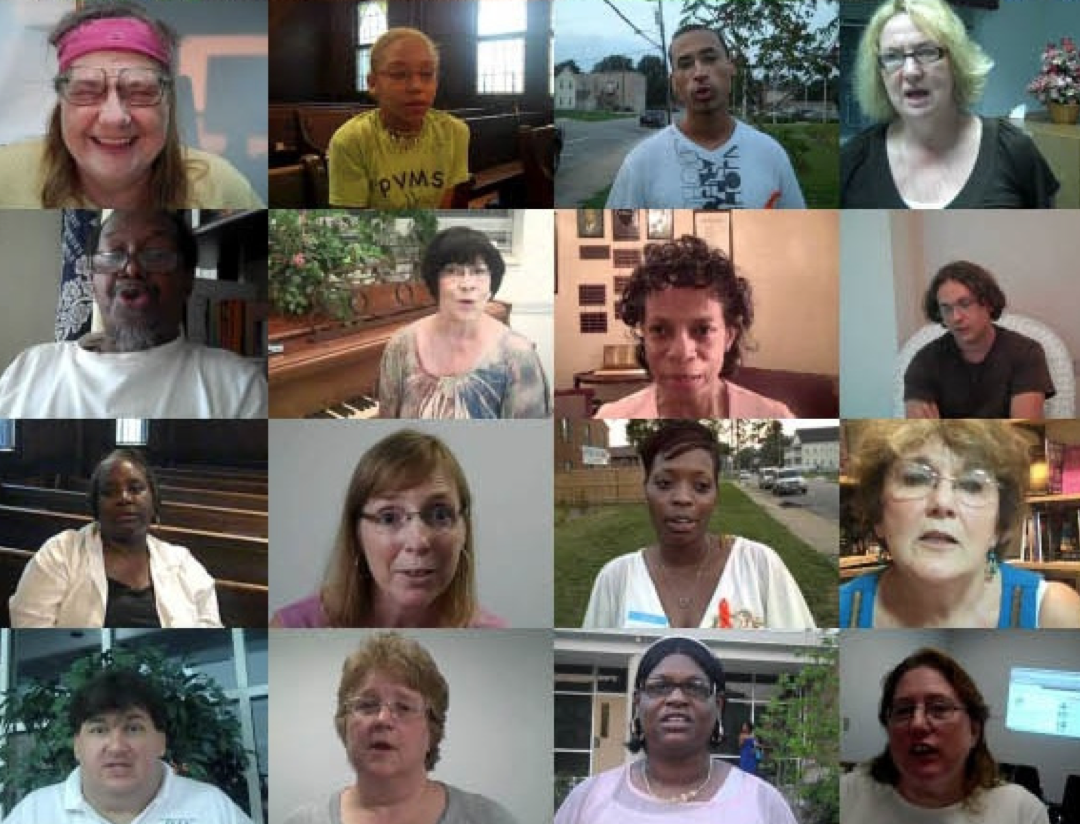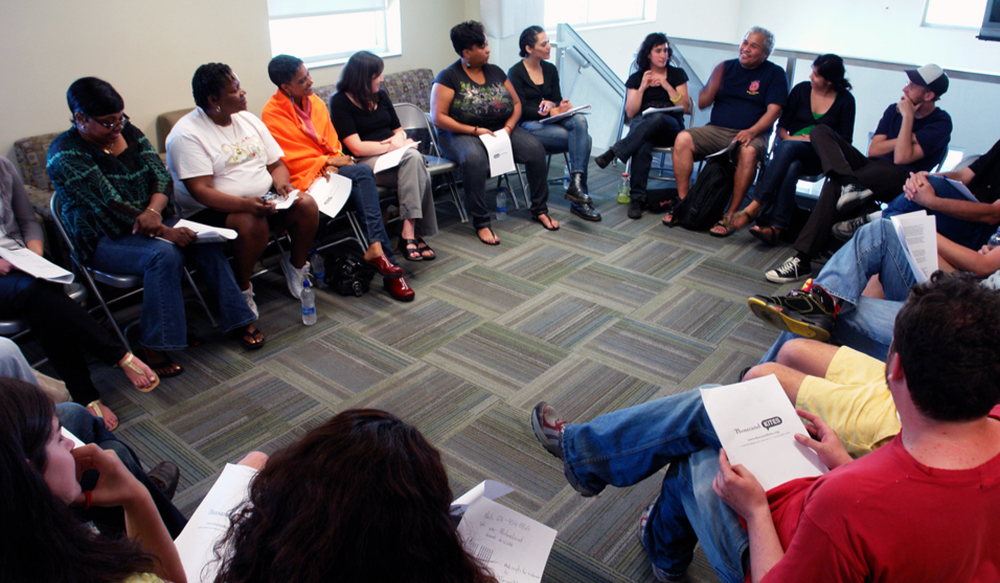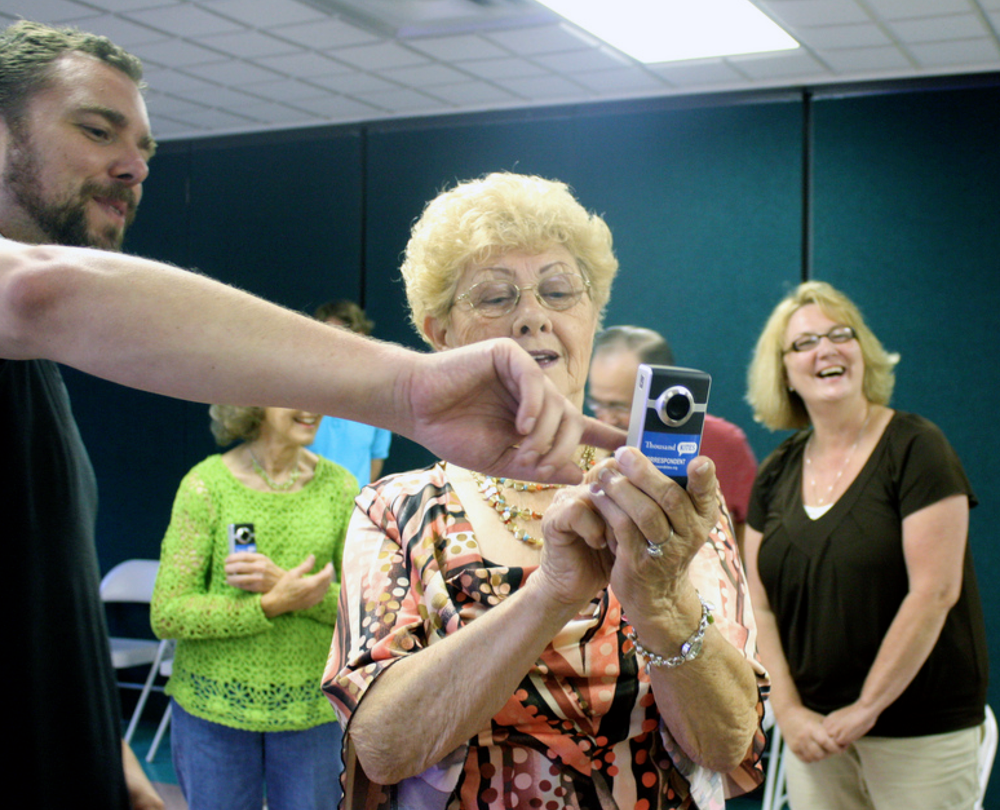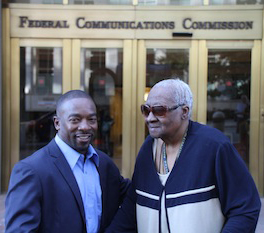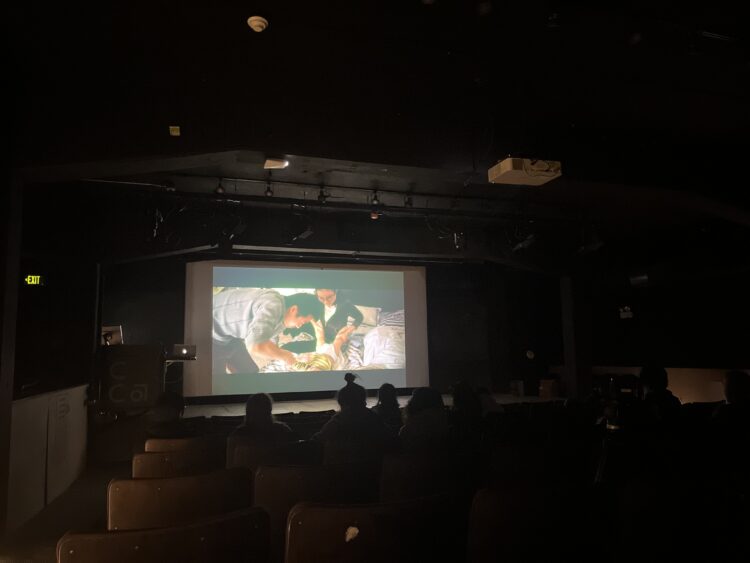Nick Szuberla Organizes for Criminal Justice Reform
A few months ago I had the opportunity to talk to Nick Szuberla, a 2006 Emerging Fields grantee, about the development of his Creative Capital project, Thousand Kites, a multimedia, community-based project centered on the criminal justice system in the U.S. Only part of that story made it into my original blog post, so I followed up with him so that we could share the whole, fantastic story.
Lisa Dent: When you first applied for the Creative Capital grant in 2005, what was your most important goal?
Nick Szuberla: When I moved from my hometown of Toledo, OH and into the Appalachian coalfields in 1998, I was interested in learning more about the impact that prisons, as a form of economic development, were having on the Appalachian community. I made contact with local prisoners after I began a weekly radio program, “Holler to the Hood,” that became popular with them. I was playing hip-hop in a sea of bluegrass. The prisoners I spoke with cued me in to the human rights abuses taking place at two supermax prisons near my home. Among the numerous tragedies I learned about, two ended in the death of an inmate.
My goal in applying to Creative Capital was to quickly scale up my efforts to deal with the situation through a multimedia project (radio, video, and theater) called Thousand Kites. I hoped to work with the community to build enough cultural and political power in our tiny rural corner of the world to put forward a counter-narrative that would change public opinion and state policy. To varying degrees, that goal was met.
Nick Szuberla presenting on Thousand Kites at the 2011 Creative Time Summit
Lisa: When I spoke to you about the project earlier this year, you seemed surprised by the networks you were able to create through Thousand Kites. How many people have you connected with?
Nick: Since I received the grant in 2006 we have created a network that encompasses over 50,000 individuals, stakeholders who are slowly but successfully making changes to the U.S. criminal justice system. That all started with the scrappy upstart radio program I mentioned, so I’m amazed at how this whole thing has grown. Not to be too boastful, but a lot has been accomplished in the interim. With a team of collaborators, I’ve produced a documentary film and theater program on prisons, aired 612 radio broadcasts of prisoner family calls, initiated a prison storyline that has recorded close to 3,000 stories, and done criminal justice residency and community engagement projects in almost every state. What’s incredible is how much still needs to be done.
Lisa: So then you began to reach out to the people who recorded these stories and the groups they’re part of, right? What did you ask them? What surprised you?
Nick: When I talk with folks concerned about mass incarceration, my basic questions are, “What’s your experience?” and “What do you want to change?” I’m interested in hearing a person’s story, pulling back from it and figuring out how we can connect their story and their passion to a broader movement to change the criminal justice system in this country. That process gives us a space to play together and explore. With my latest project, Nation Inside, I’m helping campaign organizers utilize data and storytelling. I want to see a story-driven campaign in every state and a network of over 100,000 by the end of this year. This project currently demands about 30 hours a week of technical support.
Lisa: I’m still stunned by those numbers. How did you decide what to do next?
Nick: I came to feel that being an artist housed within a traditional nonprofit arts center simply didn’t allow me the latitude I needed. Nonprofits offer a home base and a good way to secure funds, but the downside is having to spend a lot of time tending to administrative and facility work. As someone who works in a lot of low-income, sparsely resourced communities, I found myself spending way too much time on those concerns and not enough on my artistic and social justice work. At this point in my career, I aim to create lighter, more interconnected networks that speak to this problem. That has meant stepping away from vertical nonprofit structures and instead going horizontal—our organization is called Working Narratives.
Lisa: What kinds of resources are you able to offer partners under your new structure?
Nick: We offer training in storytelling and media production, as well as residencies, free access to a communications platform (that acts as a powerful database and advocacy tool) and networking events. It’s our partners who generate content and are active on the platform; that’s what makes for a rich environment and for rapid social action and cultural production. Building a lean and viable network takes tremendous effort, but it’s worth it. The trick is to closely align the network-building with the cultural work. You can’t separate the two. You build a network through cultural work. We look for the moments when that occurs and celebrate them.
Lisa: How do you think Creative Capital prepared you for these challenges?
Nick: Creative Capital taught me that it simply was not enough to make art. When I feel ungrounded, where is the next paycheck coming from? I think about the core skills and planning that Creative Capital gave me. I use them to create a safety net so I can take educated risks with my work and go forward. The problem with taking efforts to new heights is that the air gets awfully thin, the incline exhausting. Creative Capital developed and reinforced a skillset that allows me to breathe easier.
Lisa: Earlier this year we talked about prison phone calls and the organization you co-founded, Campaign for Prison Phone Justice. Of all of the prison abuses you hear about, this was the one my friends and colleagues were most surprised to hear about.
Nick Szuberla: Millions of prisoner families have faced outrageous fees charged by telecommunication companies that offered kickbacks to the states where they provided phone service to correctional facilities. Lawyers representing several clients including Martha Wright, the blind grandmother of a prisoner, filed an official complaint with the Federal Communications Commission (FCC) more than ten years ago. As her grandson’s sentence wore on, picking up the phone to speak to him threatened Wright’s economic survival. For years, the FCC took no action.
Campaign for Prison Phone Justice was launched in an effort to force the FCC to regulate the cost of prison phone calls. We decided to do a full-court press on the issue, hoping to force the FCC’s hand. For me, personally, that campaign was a continuation of my previous artistic work, which included “Calls from Home,” a radio show that gave prisoner families a chance to speak directly to their loved ones in prison without paying enormous phone charges. Calls from Home lasted about 13 years and helped lay the foundation for the campaign.
Just this past August, we celebrated a major victory when the FCC voted to regulate the cost of prison phone calls. The direct result is helping millions of family members stay in touch with their loved ones by allowing them to call them at reasonable rates.
Listen to Calls from Home on SoundCloud
Lisa: That’s amazing. How did you feel when you heard the ruling?
Nick: I felt elated. However, the campaign isn’t quite over, as the new regulations apply to interstate and not intrastate calls. Fortunately, the campaign’s partners—Center for Media Justice, the Human Rights Defense Center, and Working Narratives—have the tenacity needed to move the campaign forward.
